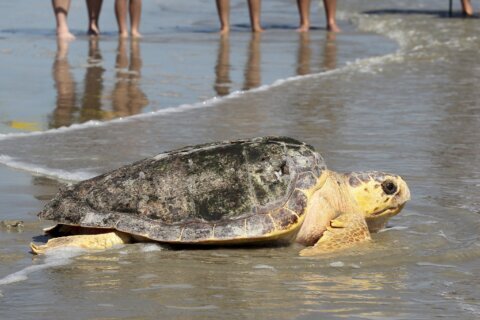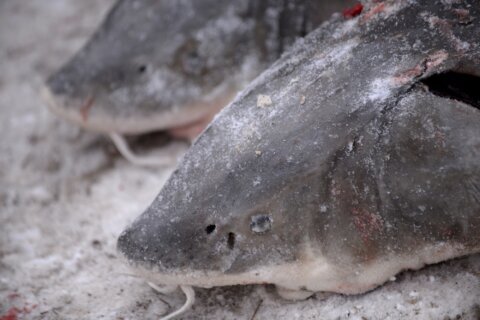ANCHORAGE, Alaska (AP) — The U.S. Fish and Wildlife Service failed to adequately explain why it changed its position on Endangered Species Act protections for the Pacific walrus, an appeals court panel ruled.
In 2011, the federal agency found listing the walrus as a threatened or endangered species was warranted because of diminishing sea ice habitat. The walrus was not listed, though, and instead deemed a candidate for special protections.
But six year later, the Fish and Wildlife Service said the walruses had “shown an ability to adapt to sea ice loss that was not foreseen when the Service last assessed the species in 2011″ and determined protections were not warranted.
A three judge panel of the 9th U.S. Circuit Court of Appeals on Thursday ruled that while a 2017 review contained new information, “the actual decision document does not explain why this new information resulted in an about-face from the Service’s 2011 conclusion that the Pacific walrus met the statutory criteria for listing.”
The Center for Biological Diversity, a conservation group that petitioned for Endangered Species Act protections for the walrus, sued in 2018. A federal judge rejected the challenge, prompting the appeal, the Anchorage Daily News reported.
The appeals court panel said the Fish and Wildlife Service is required to provide “a sufficient explanation of its new position.”
Emily Jeffers, an attorney for the Center for Biological Diversity, said the ruling “gives the Pacific walrus a fighting chance.”
Jeffers, in a statement, said the federal wildlife agency “will have to go back and examine the science on sea-ice loss and walrus survival, and we’re confident they’ll give these creatures the protections they desperately need.”
Andrea Medeiros, a U.S. Fish and Wildlife Service spokesperson, told The Associated Press by email Friday that the agency had no comment.
The Pacific walrus live in the Bering and Chukchi seas and haul out on sea ice and along coastline and islands, according to the Alaska Department of Fish and Game.
The Center for Biological Diversity said the walrus rely on Arctic sea ice “for their essential life functions.”
Copyright © 2024 The Associated Press. All rights reserved. This material may not be published, broadcast, written or redistributed.







